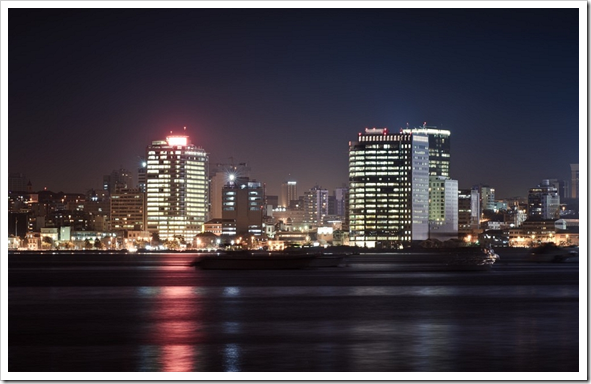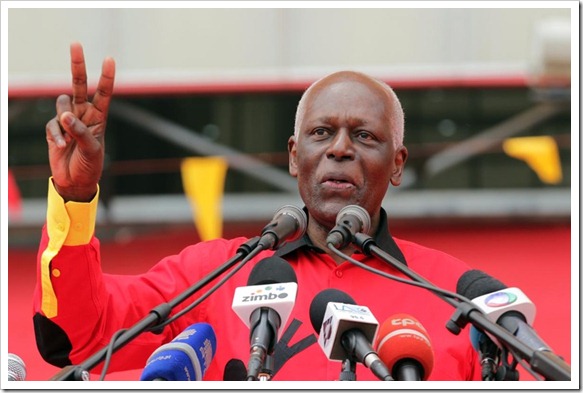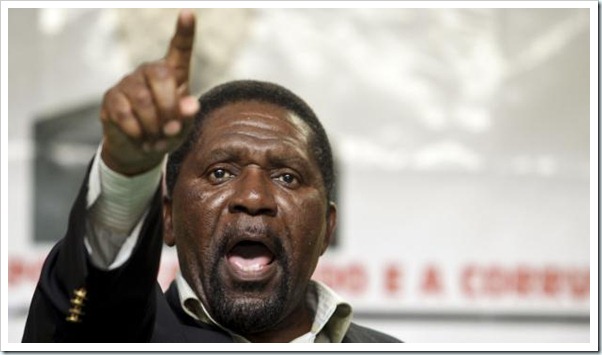O Standard Bank quer ter 27 balcões em Angola até Junho de 2013. O presidente do banco para a África Ocidental, Dominick Bruynseels, destaca a importância geográfica do país, que «tem um perfil de crescimento muito grande nos próximos cinco anos».
Qual a importância de África na estratégia geral do Standard Bank?
É muito importante porque o Standard Bank África representa 20% da rentabilidade do grupo, mas estamos a pensar crescer significativamente nos próximos anos. Mudámos a nossa estratégia nos últimos 18 meses para focar os recursos neste continente. Consideramos África como a nossa casa em termos de sectores-chave, nomeadamente as áreas do petróleo e gás, minas e minerais, e noutras indústrias associadas. Temos uma vasta experiência neste domínios, que são fundamentais em Angola.
Qual será a vossa aposta no mercado angolano?
Temos 12 balcões até o momento, com 300 colaboradores, e estamos a pensar expandir até 27 a meio do próximo ano. Queremos ter pontos de caixas electrónicos ligados às agências; brevemente teremos o sistema de internet banking; e outra área importante para nós é o business banking – um sistema voltado para o comércio e para as MPME - Micro Pequenas e Médias Empresas –, além de outras técnicas que vão simplificar as concessões de crédito.
Qual é a relevância dos quatro países da região ocidental _– Angola, Congo, Gana e Nigéria – para o Standard Bank?
Angola ainda dá pouco rendimento, porque o nosso negócio aqui está a desenvolver-se. De momento estamos a investir em balcões e nos recursos humanos. Temos localmente como parceiro a seguradora AAA, que detém 49% das acções do Standard Bank de Angola, e estamos muito satisfeitos com esta colaboração. Penso que o balcão no edifício Lenin, recentemente inaugurado na sede da AAA, é um bom exemplo da parceria entre as nossas duas instituições. Isso permite-nos também uma movimentação mais rápida em termos de abertura de novas agências e, obviamente, dá-nos outro traquejo.
O que pode significar Angola para o Standard Bank?
Primeiramente pode representar uma grande oportunidade de crescimento para o grupo, pelo facto de ser um país que está a crescer de forma significativa. Mas queremos crescer sustentadamente e de acordo com os princípios de governação que o grupo Standard Bank segue, com as melhores práticas bancárias. O destaque vai para as minas e mineração, petróleo e gás, business banking e MPME.
Em que países o Standard Bank tem melhores resultados?
Penso que isso depende de diversos factores, o tempo em que o banco está implementado num país é um deles. A curto prazo gostaríamos de ser maiores e tirar maiores proventos na Nigéria. Temos também um negócio promissor em Angola, mas ao contrário da Nigéria, que tem 150 milhões de habitantes, a escala é menor. Mas Angola é um país atractivo.
O Standard Bank é uma instituição global, como tem sido o crescimento em Angola e internacional?
Começámos na África do Sul, em Port Elizabeth. Comemorámos a 15 de Novembro 150 anos de existência. Na génese do banco as pessoas não imaginavam que fossemos chegar a este patamar, quanto a Angola tenho esta mesma sensação. Começámos o nosso negócio projectando cerca de 27 balcões e estou convencido de que vamos encontrar um ambiente rentável, para repetir o sucesso que temos tido em África. A expectativa é que Angola seja um êxito dentro de 50 anos. No resto do continente estamos representados em 18 países. Mas também temos presença nas principais praças financeiras do mundo, como Londres, Reino Unido; em Pequim e Hong Kong, na China – especialmente devido ao ICBC (Industrial and Commercial Bank of China) que detém 20% do Standard Bank –; em São Paulo, no Brasil; no Dubai, Emirados Árabes Unidos; em Nova Iorque, nos EUA. Tudo para atrair os principais investidores ao continente africano.
Angola pode ser uma porta para o desenvolvimento na região Austral?
Angola pode certamente ser uma das portas para África por razões logísticas. É por isso que os responsáveis do país estão a reactivar os caminhos-de-ferro em quase todo território. É muito importante fazer com que as vias ferroviárias cheguem à República Democrática do Congo, ao Congo e aos outros países da região. Angola é, de facto, uma porta para o desenvolvimento na África Central.
O país pode já comparar-se com outros Estados africanos?
Tem um perfil muito grande de crescimento nos próximos cinco anos, mas com grande dependência das receitas petrolíferas. O mais importante para a criação de empregos é que a economia se diversifique. E aí entramos nós com o business banking, por ser um sistema que envolve investidores que podem aplicar de 1 a 100 milhões de dólares e fomentar a criação de empregos. Em relação aos outros países do continente, Angola tem um futuro saudável. Está politicamente estável, a economia cresce e foi anunciado recentemente o FSDEA - Fundo Soberano para o Desenvolvimento, de 5 mil milhões de dólares.




![Angola-eleicoes-2012[1] Angola-eleicoes-2012[1]](http://lh4.ggpht.com/-iLEmEYFdSVc/UE3i92-jSNI/AAAAAAAACgU/hPkoT2HDyQE/Angola-eleicoes-2012%25255B1%25255D_thumb%25255B3%25255D.jpg?imgmax=800)


![424603_362430537169651_1049901347_n[1] 424603_362430537169651_1049901347_n[1]](http://lh6.ggpht.com/-HPHgqKimyPE/UEVEWg5C2DI/AAAAAAAACdw/oawVf-etblQ/424603_362430537169651_1049901347_n%25255B1%25255D_thumb%25255B3%25255D.jpg?imgmax=800)


![jesnozaire[1]_thumb[1] jesnozaire[1]_thumb[1]](http://lh5.ggpht.com/-ol8JRmvH-1M/UDZFe8rTLtI/AAAAAAAACa0/OgJJgUdNZEQ/jesnozaire%25255B1%25255D_thumb%25255B1%25255D_thumb%25255B8%25255D.jpg?imgmax=800)
![185468_274386255999773_1887416950_n[1] 185468_274386255999773_1887416950_n[1]](http://lh3.ggpht.com/-kCksg68m_QA/UCUbuo4fN6I/AAAAAAAACZE/AiYO5BkI__Y/185468_274386255999773_1887416950_n%25255B1%25255D_thumb%25255B2%25255D.jpg?imgmax=800)
![Iran-Turkey-flags[1] Iran-Turkey-flags[1]](http://lh4.ggpht.com/-FpCYbzgjseE/UBenamYylQI/AAAAAAAACYM/We1S2kzWqZ4/Iran-Turkey-flags%25255B1%25255D_thumb%25255B2%25255D.jpg?imgmax=800)
![love-inspirational-daily[1] love-inspirational-daily[1]](http://lh3.ggpht.com/-REwFmDjjquc/T_bnMXLvRrI/AAAAAAAACRE/5RhY-OvugzE/love-inspirational-daily%25255B1%25255D_thumb%25255B2%25255D.jpg?imgmax=800)